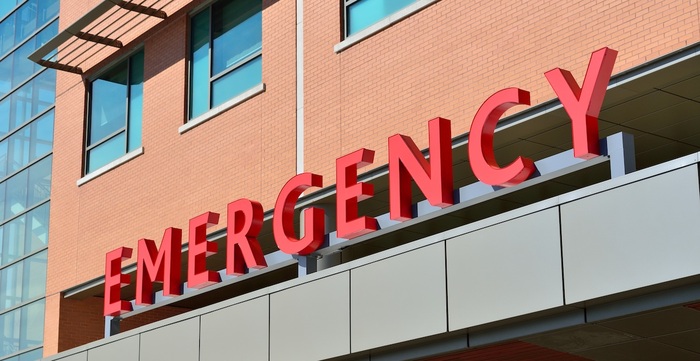
Feel better faster. Get care today.
From the clinic or your couch. Find high quality, same-day urgent care for you and your kids. Book an urgent care visit today.

Urgent care doesn't make sense in some cases and you should always know the difference between an urgent care and an emergency room. For example, if your loved one is experiencing heart attack symptoms, an urgent care clinic will forward you to an emergency room. Here are examples of times when you should not go to an urgent care clinic.
Defining major medical traumas can be difficult, but they generally include any event that could cause the loss of life, limb, or eyesight. Here are examples of illnesses and issues that call for emergency room care, rather than urgent care:
People experiencing one or more of these problems should call 911 immediately, or proceed to the nearest emergency room. Insurance providers cover ER visits for any problem that could cause death, loss of limb, or loss of eyesight.
While most urgent care locations have extended hours – most between 8am to 8pm, 7 days a week – most urgent care clinics don't stay open 24-hours a day. It's important to know your urgent care clinic's hours before you leave home, so that you don't waste valuable time re-routing to a hospital emergency room. If your visit is a non-emergency, then you could wait for the urgent care clinic to open the next morning for walk-in appointments, or call your primary physician for an appointment.
Urgent care locations do not facilitate childbirth. If you are going into labor, you should head to the nearest hospital for the appropriate care. While an urgent care location would be better than nothing (such as in the event of a natural disaster), it should never be a woman's first choice if she is giving birth.
Pregnant women should consult with their obstetrician and general practitioner for assistance in planning a birthing location and plan. Most OBs have preferred hospitals for deliveries.
Most chronic conditions should be conducted by a primary care physician or appropriate specialist as they will be more familiar with your medical history and treatment plans. For example, if a patient is being treated for diabetes in an ongoing manner, then he or she should not go to urgent care clinics for follow-up appointments. Chronic conditions should be treated by one physician consistently, if possible, so that symptoms can be monitored for changes. Here is a list of chronic conditions that should be treated by a primary physician:
An urgent care facility could treat symptoms of chronic conditions. However, for a patient to receive insightful care, it is best to go to the physician who understands the scope and severity of your chronic illness whenever possible. Urgent care facilities help people who need walk-in medical care after traditional business hours, or when a primary physician is not available. They do help with minor issues such as colds, flus, or broken bones, but they are not equipped for major medical traumas and childbirth. People experiencing major traumas, pregnancy and childbirth, or urgent after-hours problems should go to emergency rooms for proper care and treatment.
No, these are considered major medical traumas and should be treated in an emergency room.
No, urgent care clinics typically do not operate 24/7. For after-hours emergencies, go to a hospital's emergency room.
No, childbirth should be handled at a hospital. Urgent care clinics do not facilitate childbirth.
No, chronic conditions should be managed by a primary care physician or specialist who is familiar with your medical history and treatment plans.
Urgent care clinics are suitable for minor issues like colds, flus, or broken bones, or when a primary physician is not available.
No, most chronic conditions such as diabetes, hypertension, and routine wellness exams should be conducted by a primary care physician or appropriate specialist who is familiar with your medical history and treatment plans.
Yes, an urgent care facility can treat symptoms of chronic conditions. However, for insightful care, it is best to go to the physician who understands the scope and severity of your chronic illness whenever possible.
No, urgent care clinics are not equipped for major medical traumas and childbirth. People experiencing these conditions should go to emergency rooms for proper care and treatment.

From the clinic or your couch. Find high quality, same-day urgent care for you and your kids. Book an urgent care visit today.